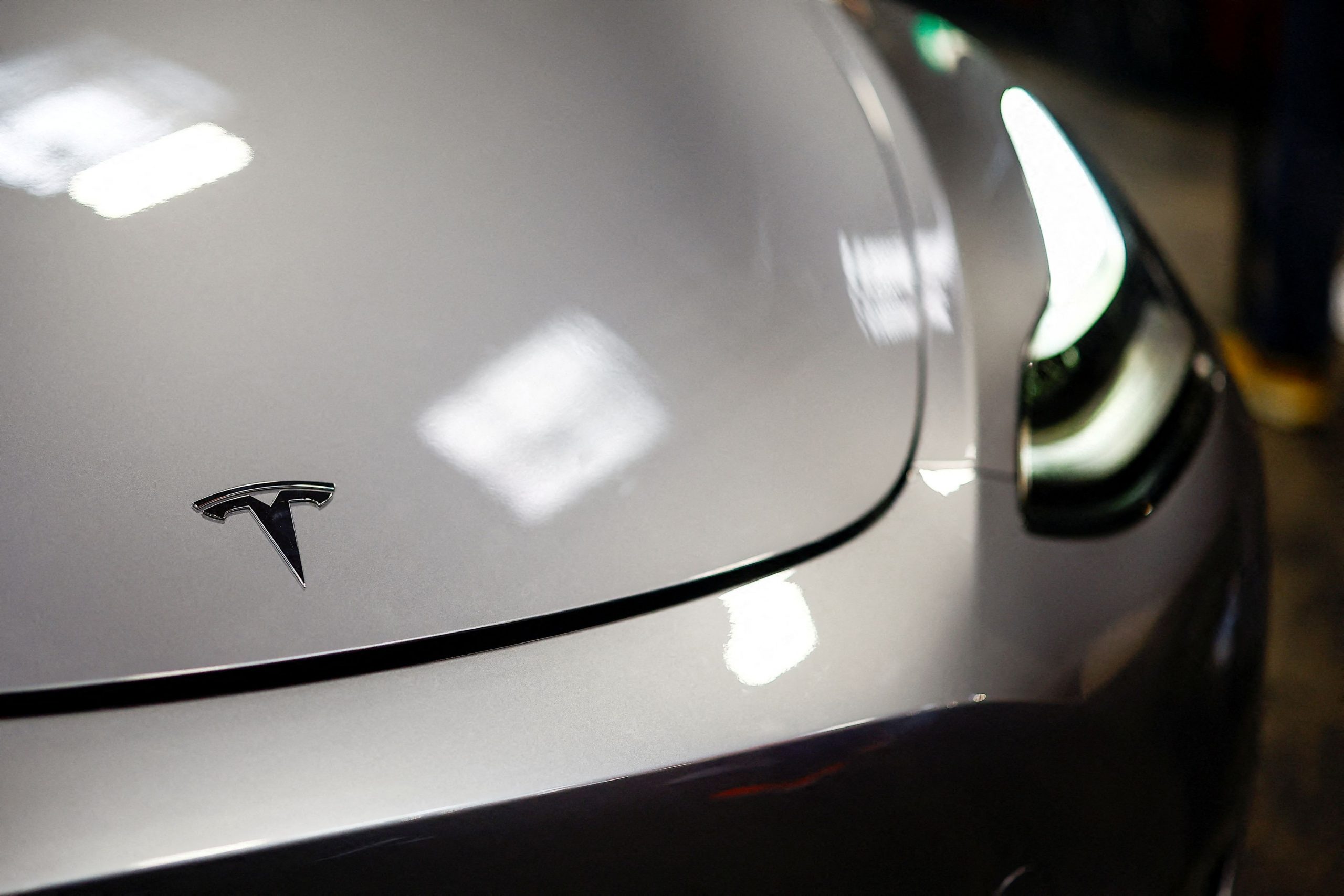Tesla ’s global vehicle deliveries fell in 2024 for the first time in more than a decade, after a surge of promotional deals in the fourth quarter failed to stimulate sales enough to top the prior-year results.
The electric-car maker delivered 495,570 vehicles in the fourth quarter, leaning heavily on promotions, such as interest-free financing deals and free Supercharging, to entice buyers.
The result—a quarterly record—was up about 2% from a year earlier, but it fell short of the roughly 515,000 vehicles it needed to sell in the fourth quarter for Tesla to top its 2023 performance on a full year basis.
For all of 2024, Tesla delivered 1.79 million vehicles worldwide, down about 1% from a year earlier.
The company plans to report fourth-quarter earnings on Jan. 29.
Tesla’s stock was down about 4% in morning trading Thursday, following the release of its latest delivery figures. The automaker’s shares ended 2024 up more than 61% after a postelection rally.
Wall Street has largely looked past Tesla’s sales turbulence and focused on Elon Musk ’s long-term strategy to shift the company toward robotics and artificial intelligence. Tesla’s share price has nearly doubled in the weeks since the election, sending Tesla’s value to a high of $1.5 trillion in mid December.
On New Year’s Day, Tesla was thrust into the spotlight when a rented Cybertruck pickup loaded with canisters of gas and firework mortars exploded in front of Trump International Hotel in Las Vegas, killing one person and injuring seven others.
The Tesla CEO wrote on X, the social-media platform he owns, that his team investigated the incident and that the explosion was “unrelated to the vehicle itself.”
In recent weeks, Musk’s attention has drifted away from his companies and into the political arena. He has spent his time sitting side-by-side with President-elect Donald Trump at his Mar-a-Lago resort, suggesting cuts to government spending through the Department of Government Efficiency and successfully lobbying Congress to kill a government spending bill.
Investors are hopeful that Musk’s proximity to Trump will aid his businesses, including through federal regulations that simplify Tesla’s path to deploying autonomous vehicles nationwide.
In October, Musk unveiled the prototype for a two-seater, fully autonomous robotaxi called the Cybercab, which he said could be priced under $30,000 and would be available for individual customers to buy. He said that Tesla planned to produce the Cybercab by 2027. He also revealed a larger vehicle for transporting up to 20 people or cargo, which it dubbed the Robovan.
Despite these longer-range bets, Tesla’s most pressing challenges are in its core auto business, which has lost momentum after years of the company posting double-digit sales growth.
Tesla had steadily posted year-over-year increase in its global vehicle deliveries since 2012, when it released the Model S, a luxury sedan and its second model after the Roadster sports car.
More recently, consumers have cooled on the electric-car pioneer’s aging vehicle lineup, which includes models that haven’t been fully redesigned in years, and some have been turned off by Musk’s rightward shift politically and support of Trump.
Rival automakers have also flooded the market with competing electric vehicles, many of which are already selling with steep discounts as unsold inventory has stacked up. Tesla started delivering its newest model, the Cybertruck, in late 2023 . The lowest-price version of the Cybertruck now starts at $79,990.
Tesla is expected to release a new, lower-cost car in the first half of 2025, though it is unclear whether it is a new model or an update to an existing car in its lineup.
Tesla’s year got off to a difficult start. In the first quarter, it posted its first year-over-year decline in global deliveries since 2020. Its performance continued to slide in the second quarter with the automaker reporting a 6.5% decline in global deliveries for the first half of 2024.
Despite those headwinds, the company has benefited in the U.S. from the $7,500 federal EV credit which has lowered the total cost of its vehicles for many customers. Trump is expected to get rid of those federal subsidies, a move that Musk himself has supported, while acknowledging that it would likely hurt Tesla’s car business.
Musk has sought to refocus investor attention away from car sales and and onto its driver-assistance software, which it calls Full Self-Driving (Supervised), and its Optimus humanoid robot—technologies he has claimed could one day boost the automaker’s market value to as high as $30 trillion .
The company has said that it plans to spend $10 billion on artificial-intelligence research this year across projects that include its Dojo supercomputer and development of Optimus .
Such investments are largely funded by Tesla’s car business, which in recent quarters has faced several challenges . More broadly, demand for electric vehicles has slumped in the U.S., after a sharp uptick in sales during the pandemic. Tesla is also facing tougher competition in China , where homegrown rivals, such as BYD, have tightened their grip on the country’s electric-vehicle market.
While Tesla is still the top EV seller in the U.S., its market share has slipped in recent years.
The company accounted for 43% of all electric vehicles sold in the U.S. in November, compared with 51% of sales a year earlier, according to data from research firm Motor Intelligence.
To win customers over, Tesla has leaned into frequent price cuts and offered aggressive promotions, deals have cut into the company’s operating margins and impacted revenue.
Write to Becky Peterson at becky.peterson@wsj.com



